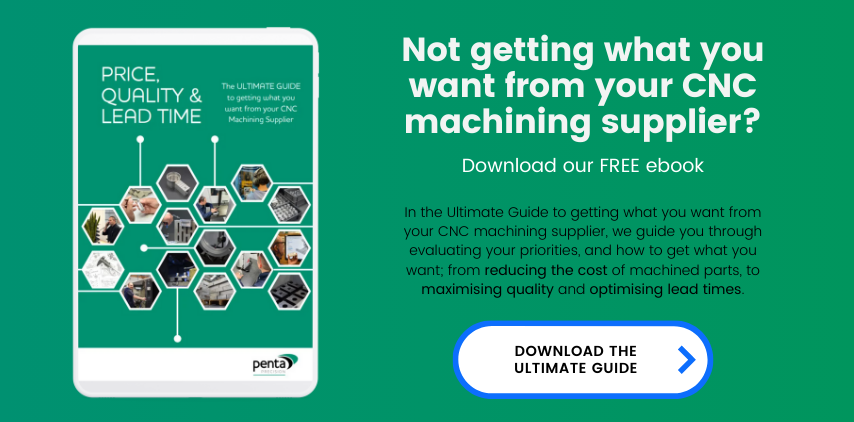Acrylic Plastic Machined Parts
Your guide to Acrylic Plastic Machining
__________
Transparent thermoplastic with excellent strength and optical clarity
Excellent glass substitute
10-24 times the impact resistance of glass
Acrylic is commonly known by its brand name, Perspex®. Its excellent strength and optical clarity make it a great alternative to glass and it even outperforms glass in several aspects. It can however be challenging to machine.
This guide will take you through the main attributes, common applications, notes for designers and suitable finishing and treatments, as well as UK stock sizes and property tables. Don't forget to bookmark the page so you can refer back later.
If you are interested in acrylic machined parts, please scroll to the bottom of the page for more information about our service and to request a quote.
Acrylic Guide: Properties, Applications and Design Considerations
__________
What is acrylic?
Acrylic, commonly known as the brand name Perspex®, is a transparent thermoplastic with excellent strength and optical clarity and is thus widely used as a glass substitute; though it outperforms glass in several aspects.
Similar in characteristics to Polycarbonate, Acrylic plastic has a lower impact strength but still boasts 10-24 times the impact resistance of glass. It is also more flexible and lighter than glass.
Acrylic can present some challenges in machining but Penta Precision has decades of acrylic machining experience so you are in safe hands.
Cast Acrylic is preferable over Extruded Acrylic for machining purposes as it is more rigid and less prone to stress cracking after machining.
As well as a sharp cutting edge and slow feed rates, we also use plenty of coolant to aid lubrication, remove swarf and help keep the acrylic below its melting point.
You may also see Acrylic referred to as:
- Trade names: Perspex, ACRYLITE®, Plexiglas®, Polycast, Lucite®, Optix®, Crystallite, Acryglas XT®, Kerrock®, Seta-LED®, Acrycast®, Setasand®, Green Cast®
- PolyMethyl MethAcrylate (PMMA)
Industry Examples: Aerospace | Electronics Automotive Medical | Transportation
Typical Components & Applications: Transparent manifolds | As an alternative to glass | Guards | Housings | Electronics components | Aerospace components | Household items | Appliances | Lenses | Automotive trim | Windows | Lighting fixtures | Furniture | Toys | Signage | Medical devices | Enclosures | Sound barriers
Main Attributes:
- Excellent optical clarity and light transmission properties
- Abrasive resistance comparable to aluminium
- Good chemical resistance
- Good flexural strength
- Around half the weight of glass and easier to process
- Readily available and reasonability cost effective
- Excellent weatherability and resistance to sunlight
- Excellent dimensional stability
- Subject to stress cracking
- Combustible
- Available in transparent or opaque forms
- More flexible and shock resistant than glass
- Good insulator
- Good acoustic properties (can act as sound barrier)
- BPA free
- Easy to solvent bond
- UV resistant
- FDA Compliant grades available
- Available in all colours imaginable
- 100% recyclable
- Available with a range of coatings including abrasion resistant, bullet resistant and electrostatic dissipative (ESD)
Note For Designers:
Although Acrylic has similar properties to polycarbonate and is used in similar applications (i.e. as impact resistant alternative to glass), it can be used when the extremely high impact strength of polycarbonate is not required. It is also BPA free which polycarbonate is not typically (although BPA-free polycarbonates are becoming available).
Once machined, Acrylic will become frosted. It will therefore require polishing to restore clarity. This process needs to be factored into time and cost. Please see the ‘finishing & treatments’ tab for further information about the processes we can facilitate.
Finishing & Treatments:
Vapour polishing – to reduce surface roughness and improve optical clarity
Mop polishing – to improve surface finish and appearance. Requires removal of material
Heat annealing - to ensure continued stabilitiy over time
See our Finishing Processes page for further information on services that we can facilitate.
Can we meet your acrylic machining needs? Contact us now
Acrylic Plastic Machined Parts
__________
Penta Precision provides the following plastic Acrylic machining services:
- CNC milling
- CNC turning
- Prototypes and batch runs
- Insert installation
- Part marking
- Manual milling
- Manual turning
- Machining design advice
- Design for manufacture service
Want to know more?
__________
Find out how we can help you
![]()
Industry Sectors
EXPLORE
![]()
Commitment To Quality
EXPLORE
Get In Touch
__________

